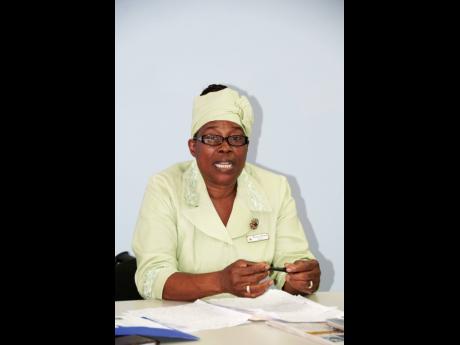‘It is going to get worse’ - Mental anguish – the hidden toll
WESTERN BUREAU:
Grief. Anxiety. Stress. Depression. Loneliness. Fear.
The COVID-19 pandemic has caused varying degrees of mental and emotional anguish over the past year with disruption to routines and losses – of income, jobs, loved ones – rattling a nation anxious to get going on its vaccination drive, a fillip to restoring a sense of hope for a better year ahead.
Krystle Kerr, a St James native currently residing in Kingston, is one of many parents who have had to help their children adjust to a new normal – online schooling and restricting social gatherings – as she tries to find her footing in the new space herself.
She told The Sunday Gleaner that the transition has been hard for herself and her children.
“Honestly, it has taken its toll on me as a parent. Pre-COVID, my children had very active social lives, and it has become mentally taxing on them to be cooped up at home,” said Kerr. “We used to go to the beach or an attraction every weekend, but it is hard explaining to my four-year-old why his weekend routine has suddenly changed, or why he cannot have a birthday party. Online school has been a big adjustment that has not gotten easier, and working from home, schooling from home 24-seven, and strict curfew hours make everyone more antsy and on edge.”
Ingrid Grandison, a Westmoreland-based wedding planner, experienced personal loss in the early days of the local COVID-19 outbreak.
“I lost my dad because of the coronavirus and he had a lung problem. I took him to the hospital on a Friday and by Monday, he was gone,” Grandison related, the pain evident in her voice, unable to even manage her grief as other aspects of her world came tumbling down.
Her wedding-planning business also took a significant hit, with restrictions placed on the number of persons allowed at such events forcing clients to cancel or drastically scale down plans.
“I do weddings and I have had many cancellations and have had to refund money because the pandemic was something we did not plan for. Since this pandemic started, it has been hell for a lot of people,” she said.
STATE OF DESPAIR
That hell is something family therapist Dr Beverley Scott says she has been observing, as many Jamaicans sink into a state of despair worsened by their inability to properly grieve significant losses sustained during the pandemic, such as the death of a loved one or the loss of a job.
“From what I have seen, even at this time when they say the vaccine will soon be here, people are still in despair and are feeling hopeless. In terms of jobs and loss of work, they do not have much hope of getting back their jobs soon, and emotionally, it is going to get worse,” said Scott.
“People cannot grieve well because there is so much trouble with finances and with children at home giving trouble. If a grandmother or an uncle dies, with these troubles already present, there is going to be a lot of grief and post-traumatic stress disorder because people are just holding strain and waiting to see if anything changes,” Scott added.
Speaking on Friday, World Health Organization Director General Tedros Adhanom Ghebreyesus said that the COVID-19 pandemic has caused more “mass trauma” and on a larger scale than World War II.
He added that the mental health toll of the coronavirus pandemic will last “for many years to come”.
COPING TIPS
n Maintain communication with other people, including relatives and friends, about your feelings and experiences, including making calls at regular intervals to render assistance to others or to get help for yourself. Do not keep to yourself.
n Engage in exercise to keep the mind and body in shape. This includes breathing exercises to revitalise your energy.
n Do not be idle, but keep yourself busy, such as maintaining backyard farming and gardening.
n Hold movie nights with your family, and have all the members give input into your meal plans so that meals do not become monotonous.
n If necessary, see a professional therapist or social worker to help you cope with your struggles. Ask for recommendations to places where you can get that assistance.

